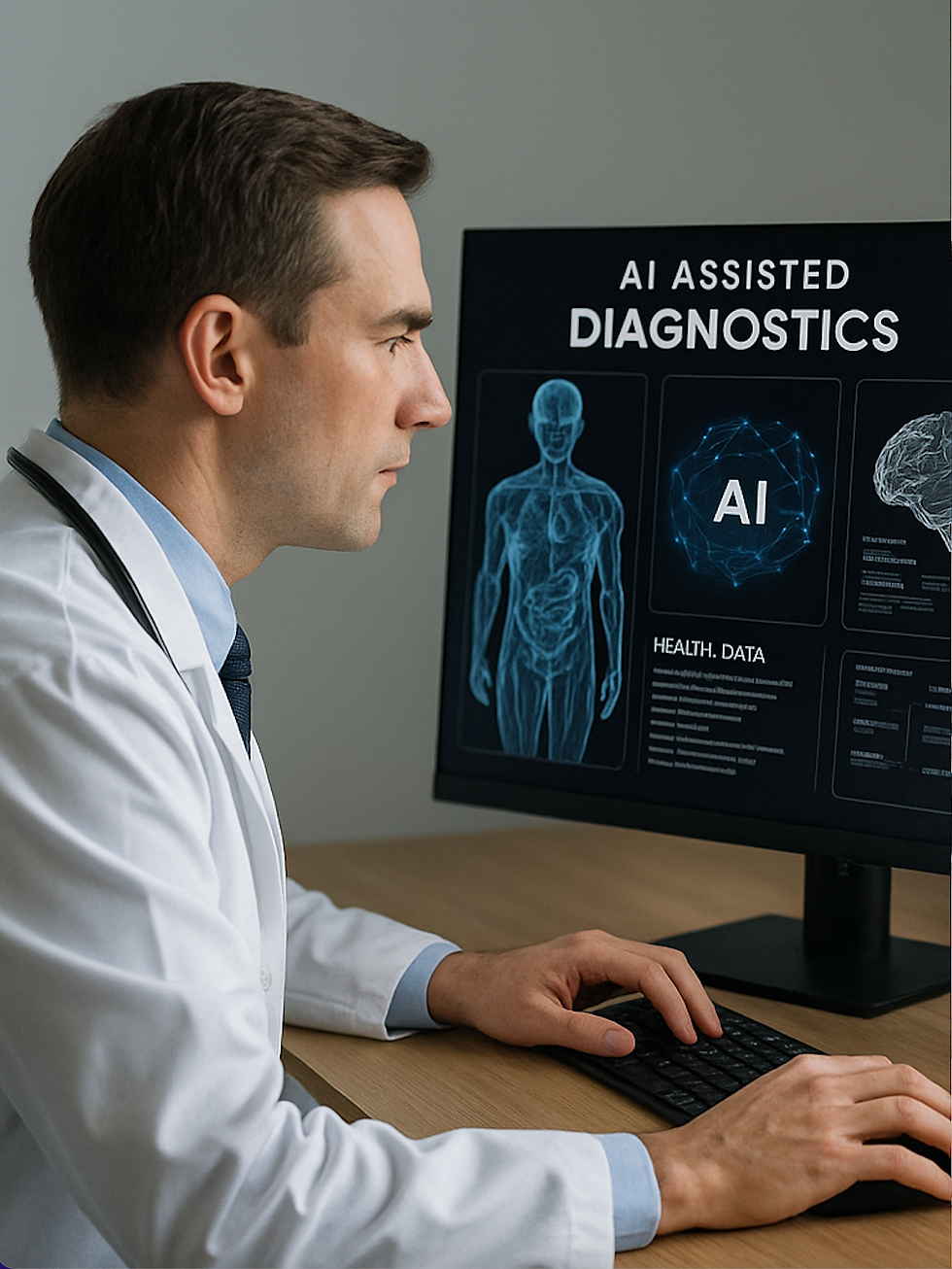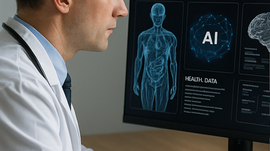Beyond the Hype: Why Human-Centered AI is the Future of Healthcare
- Eamonn McCormick
- Aug 1, 2025
- 3 min read
Eamonn McCormick
The air around Artificial Intelligence right now is electric. From groundbreaking generative models to ambitious claims of artificial general intelligence (AGI), the hype is palpable, fueled by dazzling demonstrations and substantial investment. But like many transformative innovations, AI is navigating its own hype cycle; an initial burst of euphoria and sky-high expectations, followed by the more challenging, yet ultimately more fruitful, phase of real-world adaptation.
The Reality Check: Scaling, Stability, and the Search for AGI
Part of the current excitement is driven by the dream of AGI; machines that can think and learn like humans. While this vision inspires, the scientific consensus suggests that true AGI remains a distant prospect, certainly beyond the short or medium term. We're seeing immense investments in vast data centers, but this also highlights a looming challenge: the increasing cost of training and inference for ever-larger models. There's a growing belief that the rate of improvement from simply scaling up models might be plateauing, suggesting diminishing returns for simply "bigger" AI.
This dynamic has a direct impact on the stock market. The current AI boom, epitomized by companies like Nvidia, is significantly tied to the promise of AI. If the widespread practical applications of AI don't materialize as quickly as hoped, or if the AGI dream remains elusive, the current market exuberance could wane, potentially leading to a decline in stock valuations and capital investment. This isn't unusual; technology often experiences boom-and-bust cycles.
AI is Here to Stay, Especially in Medicine
However, any market correction won't derail the fundamental trajectory: AI is here to stay and will profoundly impact our lives. This is especially true in medicine.
Healthcare is a uniquely complex domain where human touch, scientific rigor, intuition, and empathy converge. It's a field where the nuance of individual patient needs and societal contexts is paramount. While AI has a significant role to play, it's not about replacing humans. Instead, AI will become an indispensable augmentation tool for our already overstretched healthcare professionals, who are grappling with an ever-increasing workload as the global population ages.

The Nimble Future of Medical AI
Forget the idea of a single, monolithic "AGI for healthcare" operating from giant data centers. Human biology and health are far too intricate and specialized for a one-size-fits-all solution. Each medical specialty is unique, and each person, family, neighborhood, and country has distinct healthcare needs. There's no "magic bullet" for healthcare; instead, the future lies in nimble, specialized AI.
Imagine AI solutions meticulously designed to augment specific tasks within cardiology, oncology, or primary care. This focused approach allows for deep integration and optimization, providing real, measurable benefits without attempting to replicate the holistic capabilities of a human clinician.
Building a Platform for Human-Centered Healthcare
The complexity of healthcare demands a sophisticated, integrated approach. We need a platform that seamlessly brings together the care team, the most relevant data, cutting-edge AI, and advanced robotics. This platform must be built with proper guardrails and robust governance to protect both patients and providers, ensuring that these powerful tools are applied in the most appropriate, scientifically validated, and open manner possible.
Human Infrastructure, a Critical Piece
Yet building sophisticated AI platforms is only half the equation. Equally critical is the importance of data infrastructure and AI literacy among healthcare professionals. We need systematic approaches to training healthcare workers to effectively collaborate with AI systems. This human-AI collaboration requires new skills and workflows that most medical schools aren't yet teaching.
The most advanced AI diagnostic tool is useless if clinicians don't understand how to interpret its outputs, when to trust its recommendations, or how to integrate its insights into their clinical decision-making process. We must invest as heavily in educating our healthcare workforce as we do in developing the technology itself. This means updating medical curricula, creating continuing education programs, and developing new competency frameworks that prepare healthcare professionals for an AI-augmented future.
The Path Forward
Medical AI innovation won't be dictated by the transient booms and busts of Silicon Valley. Its true progress will stem from the steady march of technological advancement, guided by our unwavering commitment to healthcare as a universal good for all humanity. Medicine will always retain its human face, and AI, in its most effective form, will be the intelligent assistant helping that face deliver the best possible care to the most individuals.
What opportunities do you see for specialized AI tools in your field?


























Comments